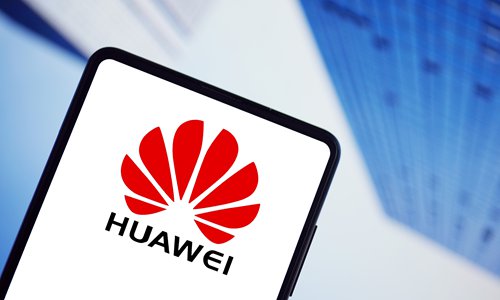HOME >> OPINION
R&D crucial to developing new technology
By Xu Hailin Source:Global Times Published: 2019/9/5 22:08:40

Photo: IC
Chinese tech giant Huawei plans to invest more than $300 million every year for research at universities, which supports those in basic science and technology, as well as innovation. "The amount [of funds] will only increase, not decrease, from now on," Xu Wenwei, director of the company's board, said during an event at the 5th Asia-Pacific Huawei Innovation Day on Tuesday. Amid suppression from the US on the company, all-round cooperation with the world is the company's strategic choice to break through the siege.
Funding universities in research is a wise strategic move of Huawei, which allows the company to be more closely linked to global development. One reason Huawei can become one of the world's leaders in telecommunications is that it attaches great importance to innovation research.
The giant tech company established the Huawei Innovation Research Program (HIRP), formerly known as the Huawei College Fund, in 1999, to improve cooperation with universities and institutions. Benefiting from such cooperation, Huawei got opportunities to share insights into the industry with distinguished research fellows and senior engineers, hold comprehensive and in-depth discussions to help translate technology innovation into tangible results.
Huawei said the HIRP has covered over 300 universities from more than 20 countries and funded more than 1,200 projects. Huawei has learned from others, completed breakthroughs and innovations, and successfully grown to a global communications giant.
Huawei is not the only party which benefits from the program. As cooperation is bidirectional and win-win, every side can get what it wants. Universities and institutions have also gained much from the program.
US President Donald Trump's crackdown on Huawei has forced some universities such as MIT and Oxford University to suspend ties with the Chinese company. This will probably negatively affect these institutions' innovation research in relevant fields in the long term.
The era of globalization determines the trend of inevitable globalization in science and technology as well as the flow of technological concepts and talent from around the world. In almost every advanced institution, there are fellows with different cultural backgrounds.
This trend shows the US is bound to fail if it intends to suppress Huawei by elbowing it out of global research and development. By doing so, the US is actually setting itself against the world's technological advances. The US ban would have an impact on Huawei in the short run, but would ultimately harm US interests.
Huawei's story shows that research and development is crucial to developing new technology. As China takes the fast lane of technological development, we would like to see more Chinese high-tech enterprises follow the footsteps of Huawei to create more technology and tangible results, which will benefit not only China but also the whole world.
Posted in: OBSERVER